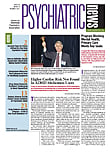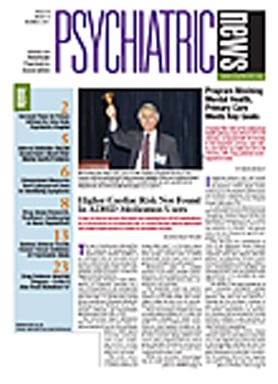Gastric bypass surgery may be good for the whole family. That’s a key finding in a report from researchers affiliated with the Section of Minimally Invasive and Bariatric Surgery at Stanford University School of Medicine, who reported collateral weight loss in the family members of patients who underwent bariatric surgery, a phenomenon they called a “halo effect.”
The study, reported in the October Archives of Surgery, consisted of a prospective, longitudinal, and multidimensional health assessment before and one year after Roux-en-Y gastric bypass (RNYGB) surgery.
The study had 85 participants: 35 patients, 35 of their adult family members, and 15 children under age 18. To be included in the study, the family members had to be able to accompany the patient on all clinic visits, and the patient and family members had to live in the same home. Patients and family members were required to attend three patient perioperative educational sessions and all postoperative visits in which lifestyle modification was emphasized (at two and six weeks, and at three, six, and 12 months). Sixty percent of adult family members and 73 percent of children of patients who underwent RNYGB surgery were also obese.
By 12 months after the operation, obese adult family members had experienced a significant weight loss. Children, whose weight changes required a different analysis to take into account their natural growth, had a lower body mass index for their growth curve. Family members had also increased their daily activity levels and had improved eating habits, and the adults had decreased their alcohol consumption. The children in the study reported fewer daily hours of television viewing and increased physical activity after a parent underwent bariatric surgery.
“Patients undergoing gastric bypass make drastic changes in their eating habits and lifestyle, and it is likely that these new behaviors affect their family members and friends who are themselves at high risk of being obese,” wrote John Morton, M.D., an associate professor of surgery and director of Bariatric Surgery at Stanford Hospital and Clinics, and his colleagues. “Bariatric surgery provides an opportunity for intervention for many individuals beyond the patient.”
“Family members’ adherence to diet and lifestyle changes may also be influenced by experiencing the entire process of just what bariatric surgery entails for their relatives, namely everything that these patients must endure, as well as by learning about lifestyle changes of exercise and nutrition,” said Sylvia Karasu, M.D., a clinical associate professor of psychiatry at Weill Cornell Medical College who reviewed the study for Psychiatric News. “The study does not discuss any negative effects or complications, such as wound infections, vomiting and diarrhea, and weight regain that may be seen after bariatric surgery, particularly in the first year post surgery, and how these may impact family members.
“The strengths of the study,” said Karasu, “are the emphases on exercise and on nutritional/caloric education. To include family members in the bariatric patient’s orientation and education is an excellent idea and may have the positive effect of keeping the bariatric patient ‘on track’ post surgery.”


